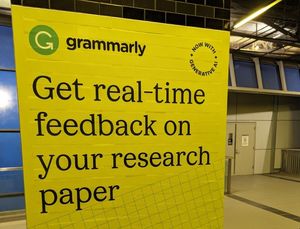How libraries reach into the flow of their users has been one of the recurrent themes of this blog. Recently, I have been interested to see libraries begin to systematise this and to understand the issues around particular approaches. I mentioned the National Library of Scotland’s presence on YouTube the other day, and a comment pointed me to an interesting discussion by Eilidh MacGlone about the initiative:
In conclusion, there really is no place like home to us at the moment – our catalogue is in much better shape than YouTube’s. But we think YouTube is a great place to take our filmshows, to visit and meet our users, to build relationships and to interact with them, and perhaps in this aspect, YouTube is better than any online service we yet offer. [WIDWISAWN: volume 6, issue 1, page 4]
This is in the nicely named WIDWISAWN (who is doing what in Scotland and what is needed). The same issue carries a piece by Andrew Youngson giving a high level overview of NLS interaction with several web-based services:
In reality the likelihood of major unforeseen issues and problems is slim. To allow such concerns to hold back making information and content available is to the detriment to the vast majority of people who could access it and enjoy it. The imagined lack of “control” is understandable, but ensuring reasonable and professional judgement is used at the point of creation should allay this fear. For every possible concern with utilising these resources, there are many more positives to be gained from sensible usage. [WIDWISAWN: volume 6, issue 1, page 3]
As we get more experience, the particular characteristics of each service will become more apparent. In commenting about this initiative, for example, Seb Chan interestingly contrasts Flickr and YouTube.
As Burgess points out, though, the best textual responses to YouTube content happen on the blogs, forums and website on which video content ends up being embedded, rather than on YouTube itself. Whilst this also occurs with Flickr embeds, my hunch is that Flickr’s active nurturing of its ‘own’ community around the site means that embedding plays a lesser role than it does for YouTube content. [fresh + new(er) » Blog Archive » Video archives in YouTube? – National Library of Scotland]
Andrew Youngson talks about enjoyment in his note above. I was at the National Library of Scotland with some colleagues from the SCONUL conference. In the entrance were panels with pictures from the collection. One caused some discussion. It was a letter from Elizabeth Taylor to Muriel Spark. Much of the interest was because she signed herself Elizabeth Taylor Burton [*]. I can now share our enjoyment with you ……:
[Note 23 March 2011: I was sad to see the news today that Elizabeth Taylor had died, and it caused me to look back at this entry. I noticed that the image was no longer showing. I am not sure why. It is available here at the National Library of Scotland site.]
[*] Interestingly, this name is not recorded in LC, DNB or BNF authority files.
Related entry:



